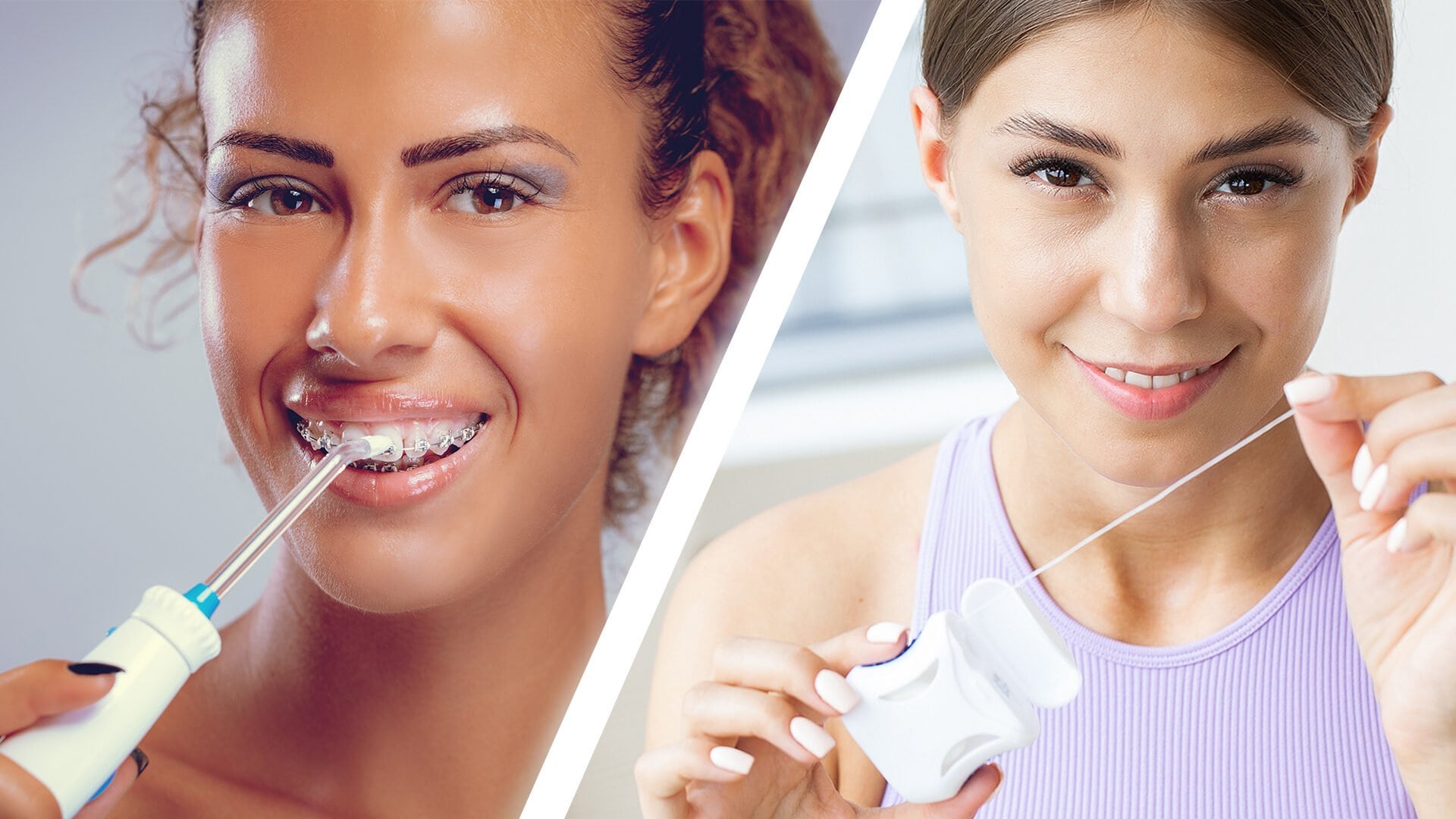Menu
Free Consultation

Oral and dental health is an important part of our overall health. Brushing your teeth regularly may not be enough because toothbrushes cannot completely clean plaque and food residue, especially between teeth. This is where dental floss and mouthwash (water flosser) come into play. So, which is more effective, dental floss or mouthwash? Which should we use? In this article, we will discuss the advantages and disadvantages of both methods in detail, and in which cases which one should be preferred.
Dental floss is a thin, nylon or PTFE thread used to clean food residues and plaque between teeth. Dental floss is usually available in different varieties, flavored or unflavored.
An oral irrigator is a device that sprays pressurized water between teeth and at the gum line to remove plaque and food debris. It is available in electric or battery-powered models.
Ideal for those undergoing orthodontic treatment: Flossing can be difficult for those with braces; mouthwash offers a more practical solution at this point.
Causes less gum trauma: Provides a more gentle cleaning compared to dental floss.
Supports gum health: Effective in preventing gum disease.
Practical and fast use: Can be applied more easily and quickly compared to dental floss.
Supports oral hygiene: Effectively removes small food residues and bacteria left in the mouth.
When choosing between dental floss and mouthwash, you should consider your personal needs. Dental floss is a traditional method that mechanically cleans plaque between teeth and is quite effective when used regularly. However, it can cause irritation in people with sensitive gums and can be difficult to use for those with braces.
On the other hand, mouthwash provides a great advantage especially for those with braces or implants. It helps prevent gum disease by cleaning between teeth with pressurized water. It is easier and faster to use, but it may not provide as much mechanical cleaning as dental floss.
While mouthwash is recommended for individuals with special oral care needs such as braces or implants, dental floss may be a better option for those looking for a traditional and portable method. It is ideal to use both methods together for the best results.
Both dental floss and mouthwash play an important role in maintaining the health of teeth and gums. The common benefits of these two tools are:
Although both products are effective in improving your oral health, some side effects can occur if used incorrectly:
Here are a few additional ways to maintain dental health:
Is Dental Floss or Oral Irrigator More Effective?
Both have different functions and are important tools for maintaining dental health. While dental floss cleans plaque between teeth, oral irrigators provide a gentler cleaning and support gum health. It is recommended to use both for the most effective results.
Does an Oral Irrigator Provide a Deep Clean Like Floss?
No, an oral irrigator does not provide as deep a clean as dental floss, but it does provide a quicker and gentler cleaning. Floss is more effective at removing plaque, especially between tight spaces.
What Should I Do If I Bleed While Flossing?
Bleeding gums are usually a sign of gingivitis. It is important to continue flossing properly, but if bleeding continues, it is important to consult a dentist.
Can I Use an Oral Irrigator While Wearing Braces?
Yes, braces users can easily use an oral irrigator. An oral irrigator is an effective method for cleaning food particles and plaque between the wires and brackets.
How Often Should You Use an Oral Irrigator?
It is recommended to use an oral irrigator once or twice a day. However, when combined with flossing, your oral health is better protected.
Flossing and irrigating are two different methods that are effective in maintaining your dental health. The ideal thing to do is to decide which one is more suitable for your personal needs and oral care requirements and use both tools together. While irrigating is recommended for individuals who have special treatments such as braces, implants or bridges, flossing may be more effective for regular and traditional cleaning. As a result, it is important to include both tools in your daily care routine to maintain your oral health.
